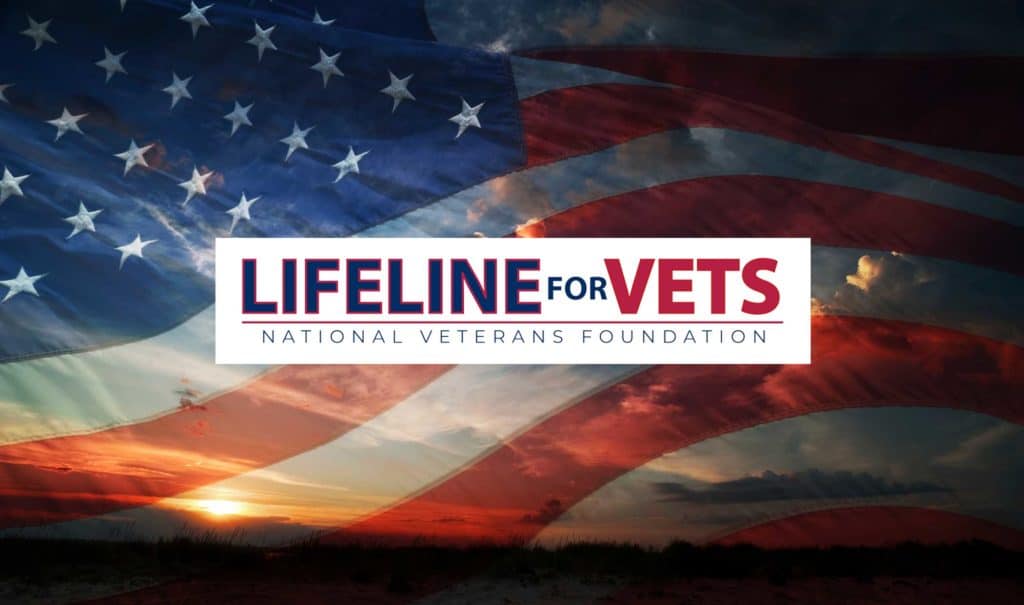Vet-to-Vet: How We Know It Works
As Veterans Day approaches, I wanted to highlight a couple of veterans’ successes by sharing stories that show the importance of vet-to-vet connection and what can happen if treatment and housing options are available to help vets rebuild their lives.
Injured in 2004 during his first combat mission, Wendell served two tours in Iraq as an Airborne infantryman. Transitioning back to civilian life, he was quick to anger and had his share of post-traumatic stress, sleeplessness, and hypervigilance. “The VA prescribed a concoction of meds,” he says. “I wanted to find an alternative way to heal. I met several team members from the National Veterans Foundation through my job at a gym. They invited me to the NVF.”
Eventually, Wendell came on board as a trained counselor. Helping other vets, hearing their stories, was therapeutic for him as well as for the vets he counseled. “Part of the healing process was being around vets, building rapport, hearing what they went through and how they coped with it. Also,” he says, “here at the NVF I was introduced to alternative ways of dealing with the combat stress I was still carrying. I was open to trying a lot of different things, and utilized what worked for me.
During his time with us, he went back to school, starting in community colleges and finishing his degree at UCLA. This September, Wendell Guillermo—a decorated combat veteran, 2010 NVF Veteran of the Year, and one of our most experienced LifeLine for Vets counselors—started graduate school at USC.
From 2007 until a few days before classes began in September, Wendell helped fellow vets on our LifeLine for Vets, our crisis, information and services hotline. “Veterans’ issues are an integral part of me now. At UCLA I helped student vets navigate the VA and the California Department of Veterans Affairs. After USC, I will definitely continue to give back in some way.”
Here’s another example: Before his 2004 deployment to Iraq with the 1st Infantry Division near Tikrit, Chris thought electromechanical engineering would be his field, but his goals shifted because of his experience on a recovery team in Iraq and some first aid training he received.
It took several attempts at getting back into school before he had the traction that earned his 3.9 GPA at UCLA and high scores on the MCAT. He’d been a good student before the Army, but afterward he lacked focus. Transitioning back from combat presented its own set of issues. “I had some anger and anxiety issues, but it wasn’t too severe. Like many vets, he started to self-medicate, “and that quickly got out of control.”
Towards the end of a 6-month residential treatment program for OEF/OIF Vets on the VA campus in Los Angeles, he started an EMT course at UCLA. He moved to veterans’ transition housing for a year, finished the EMT course and started at a community college. “Student Veterans of America was helpful in forming a network of people like me, older Veterans (22+) returning to school. The Veterans Club was especially gratifying because I was able to share what I had learned about returning home from war and adjusting to life as a civilian.”
For the past four years he’s excelled in a demanding scientific course load, majoring in Physiological Science and minoring in Biomedical Research.” Now he’s choosing among several medical schools.
Vet-to-Vet works. Know a veteran who needs help? Here’s our LifeLine for Vets: 888.777.4443
You can be a part of our mission to help Veterans by making a tax-deductible donation!
About the Author
SUBSCRIBE TO OUR BLOG AND NEWS!
By submitting this form, you are granting: NATIONAL VETERANS FOUNDATION INC permission to email you. You may unsubscribe via the link found at the bottom of every email. (See our Email Privacy Policy for details.)
Related Posts



